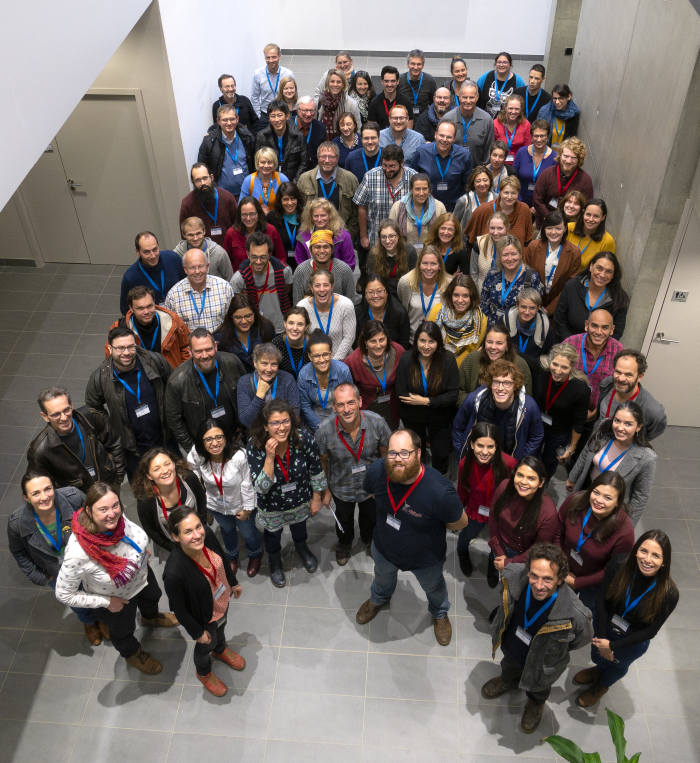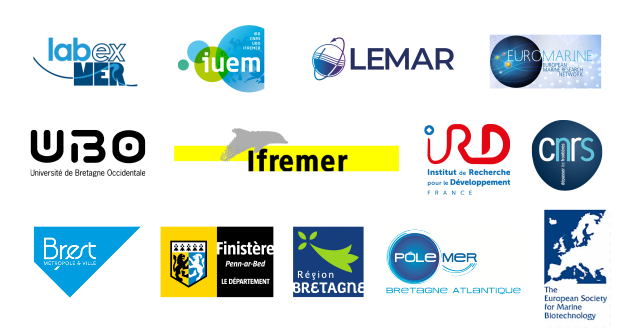
|
|
|
Main menu
HELP
|
Conference Photo
Conference context and objectives Lipids in the ocean. Structure, function, ecological role and applicationsNote: we can only welcome 140 participants From a chemical viewpoint, lipids are biological molecules that are insoluble in water but soluble in organic solvents. Within this broad definition, lipids are divided in a large number of types; including the most common ones listed as "oil", "fatty acid", "cholesterol" or "lecithin". Lipids are vital to life and are thus present in all living organisms as energy reserve and functional molecules, from animals to plants, as well as fungi and bacteria. Scientific interest for lipids in environmental sciences has quickly increased in the last two decades. Recent research provided evidence that some lipids (and not only the well-known omega-3 EPA_eicosapentaenoic acid and DHA_docosahexaenoic acid) play essential roles in maintaining vital biological function that are related to the fitness components of marine organisms. In particular, lipids are key players in an organism’s ability to respond to and cope with environmental changes (temperature, light, salinity, nutrients, and pH). Yet, sources, biosynthesis patways and functions of many lipids in marine organisms remain poorly described and understood. One of the aims of this multidisciplinary conference is to stimulate interdisciplanary discussions on concepts related to the role of lipids from lower up to higher trophic levels, serving both fundamental understanding but also socio-economic interests. From a conceptual and methodological viewpoint, investigations on marine lipids are based on resolutely interdisciplinary approaches including specialists in analytical chemistry, biochemistry, cell biology, molecular biology, physiology, ecology, and biogeochemistry. Multidisciplinary projects are essential to develop ground breaking and integrative research programs and to acquire relevant concepts on biological mechanisms associated with lipids. Such knowledge is necessary to address broader scientific questions related to climate change, conservation, and human health. This international-level conference will strengthen the position of international research on marine lipids in order to address broad scientific questions, ranging from cellular-level to marine ecosystems functioning, will stimulate the development of international collaborative projects and push the boundaries of knowledge on marine lipids and their applications. This will be crucial in the light of the recent increasing importance of Blue Growth. The program will focus on several key topics, including lipid structure and function at cellular and sub-cellular levels, recent advances in lipid analytical chemistry, stable isotope analysis of specific lipid coumpounds, lipid involvement in trophic ecology, lipids in finfish and shellfish aquaculture, influence of global change on marine lipid synthesis and fate, as well as benefits ans applications bioactive lipids and omega 3 fatty acids. This conference will stimulate the development of international collaborative projects and push the boundaries of knowledge on marine lipids and their applications. Integrating different disciplines in science is key to better defining the consequences of global changes on ecosystem sustainability. There is an urgent need to better connect the experts looking at the biochemical and physiological roles of lipids, and those interested on their effects on energy flow in food webs, fisheries and aquaculture, and human health. This conference will therefore enable the participation of graduate students, academic and government researchers, and industrial and resource managers interested by lipids in aquatic ecosystems.
Sponsors and partners
|



